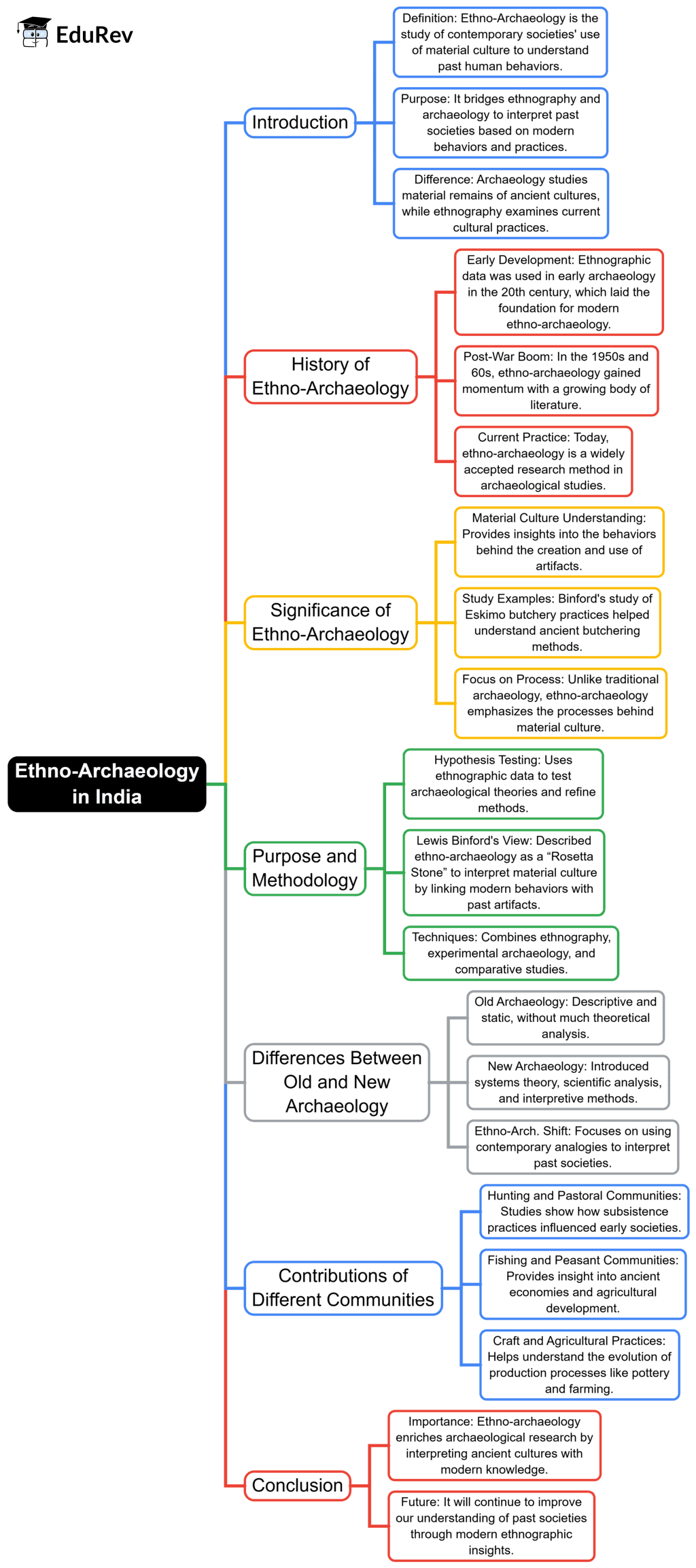UPSC Exam > UPSC Notes > Anthropology Optional for UPSC > Mind Map: Ethno - Archaeology in India
Mind Map: Ethno - Archaeology in India | Anthropology Optional for UPSC PDF Download

The document Mind Map: Ethno - Archaeology in India | Anthropology Optional for UPSC is a part of the UPSC Course Anthropology Optional for UPSC.
All you need of UPSC at this link: UPSC
|
209 videos|299 docs
|
FAQs on Mind Map: Ethno - Archaeology in India - Anthropology Optional for UPSC
| 1. What is ethno-archaeology and how is it applied in India? |  |
Ans. Ethno-archaeology is a branch of archaeology that studies contemporary societies to understand past human behaviors and cultural practices through material remains. In India, it is applied by examining the traditional practices of various communities, which helps archaeologists interpret archaeological findings, such as tools and settlement patterns, in the context of social and cultural practices that continue today.
| 2. How does ethno-archaeology contribute to the understanding of Indian prehistoric cultures? |  |
Ans. Ethno-archaeology contributes to understanding Indian prehistoric cultures by providing insights into the daily lives, rituals, and social structures of past societies. By observing modern hunter-gatherer or pastoral communities, researchers can draw parallels to prehistoric groups, thus enriching the interpretation of archaeological sites and artifacts found in India.
| 3. What are some examples of ethno-archaeological studies conducted in India? |  |
Ans. Examples of ethno-archaeological studies in India include the examination of the lifestyles of tribal communities in central India, which helps understand the tools and subsistence strategies of ancient populations. Additionally, studies of the traditional pottery-making processes among various communities shed light on ancient ceramic technologies and trade practices.
| 4. What challenges does ethno-archaeology face in India? |  |
Ans. Ethno-archaeology in India faces challenges such as the rapid modernization of communities, which can alter traditional practices and make it difficult to draw accurate comparisons with the past. Furthermore, there may be ethical concerns regarding the representation of indigenous cultures and the impact of research on local communities.
| 5. How does ethno-archaeology differ from traditional archaeology? |  |
Ans. Ethno-archaeology differs from traditional archaeology by focusing on living cultures to inform about past societies, whereas traditional archaeology primarily relies on the material remains of past civilizations without direct engagement with contemporary communities. Ethno-archaeology seeks to bridge the gap between the present and the past, enhancing interpretations of archaeological evidence.
Related Searches
















